When a 7.8-magnitude earthquake hit central Nepal in April, the world shifted its gaze towards the Himalayan nation as disaster unravelled and the death toll surged.
In the days and weeks that followed, devastating stories of loss and remarkable stories of survival were documented by international new agencies across the globe.
And just as coverage began to fade from the headlines, a second earthquake hit, thrusting Nepal’s anguish back into the news agenda.
With the worst seemingly over, the Nepalese people now struggle to get on with life, and the media gaze moves to something else. As the saying goes, out of sight is out of mind.
But the Nepal Photo Project has pledged not to let victims drift out of sight, and it is harnessing social media to keep the spotlight on Nepal.
“I hope it becomes a platform to kind of tell the story of Nepal as it rebuilds itself and [shows] the resilience of the people as they build their life back," said Tara Bedi who runs the project.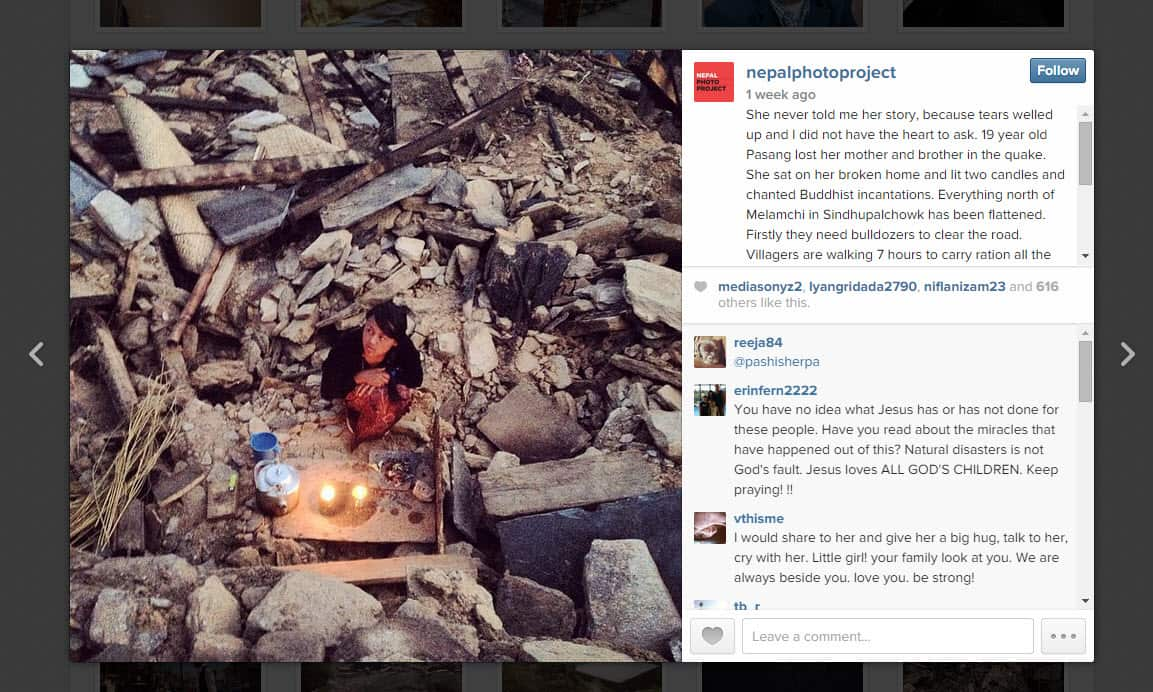

The Nepal Photo Project is giving the tragedy a face, Photo by @prashanthvishwanathan Source: Photo by @prashanthvishwanathan
Ms Bedi is freelance writer based in New Delhi, India. Though she is not on the ground in Nepal, she works closely with a small community of local and foreign professional photographers who are there. She curates their content and distributes it via social media.
“That kind of gives it a more human and personal face. It’s not just the damage of the earthquake now, you know? You’re actually dealing with real human beings and people and giving this entire thing a face,” she told SBS.
“And I think when people see that they respond really well to it and it kind of motivates people to help as much as they can - which is why we are taking that approach.”
Just hours after the first earthquake hit Nepal, Tara along with a community of photographers, decided to create a place to distribute useful and credible information from trustworthy sources who were on the ground.
“I hope it becomes a platform to kind of tell the story of Nepal as it rebuilds itself and [show] the resilience of the people as they build their life back."
“When the earthquake hit, we were looking for as much information as we could. And it’s kind of scattered through all of the various platforms and agencies that put out news. So we thought [we’d] create aggregated content that’s coming out of there [and] that’s credible because we are in contact with all of those people putting out those images.”
The team has been using Facebook, Twitter and Instagram to show damage and devastation, information about rescue and relief operations, photos of missing people and details about where people are stranded and in need of help.
Ms Bedi said the goal was to have the content reach a network of people who don’t consume news in the traditional sense but rather through social media.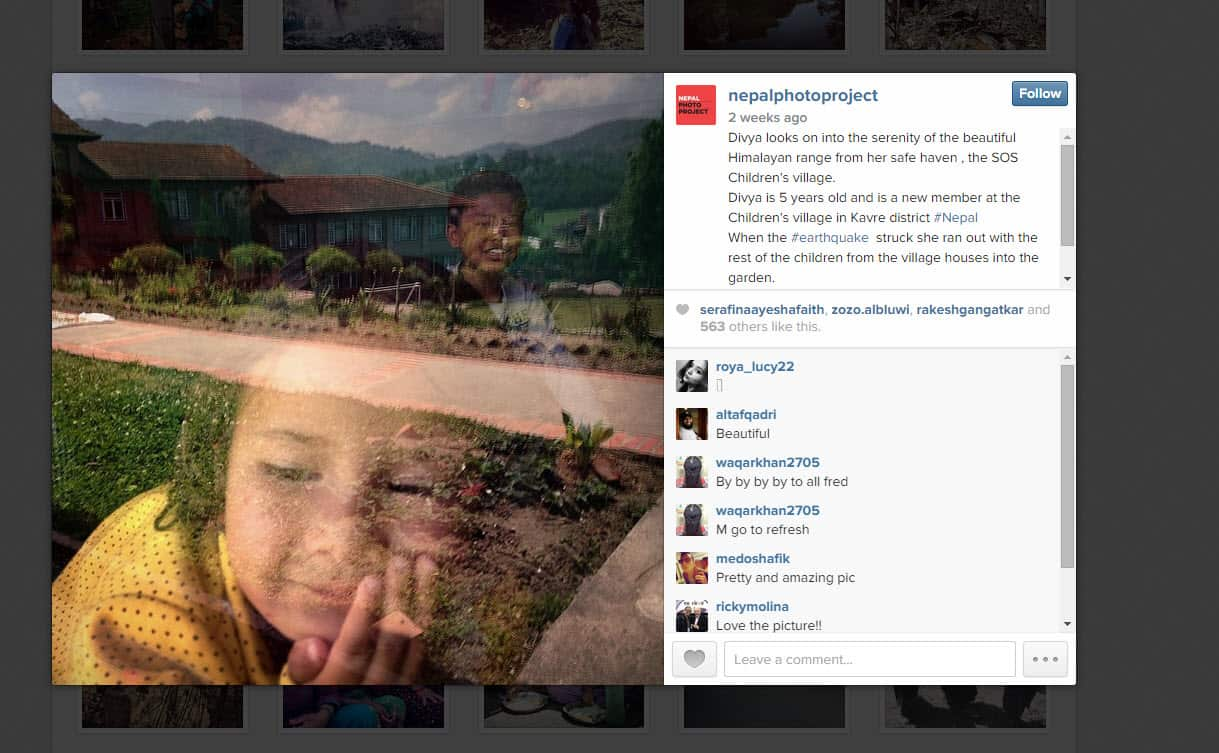 Instagram proved to be the ideal platform.
Instagram proved to be the ideal platform.

Divya is 5 years old and is a new member at the Children's village in Kavre district #Nepal When the #earthquake struck she ran out with the rest of the children from the village houses into the garden. Photo by @zishaanakbarlatif Nepal Photo Project Source: Photo by @zishaanakbarlatif
“It seems that people consume information through imagery. And that seems to work, said Ms Bedi.
“Not only is it immediate and instant, it supports a little bit of text so you can put in information. And it’s really kind of an open engagement over there, so people, when they look at the captions and the images, they can respond, they can tag people, they can share it. And that work flow has been easy for us.”
“A large network of people are using it,” said Ms Bedi.
The account has also been sourcing citizen journalists who’ve been contributing their own images to the feed, provided they’re accurate and credible.
"It’s not just the damage of the earthquake now, you know? You’re actually dealing with real human beings and people and giving this entire thing a face,”
“When people saw we have a large reach and a fairly substantial network of followers they started sending us photos of people who are missing, who they were trying to get in touch with.”
Ms Bedi said it’s hard to quantify exactly how many people have been reunited with their loved ones because of the project. But there have been instances that suggest this is the case.
“People have seen photographs of say, a girl or a family and they’ve written in saying where is this person? How can I get in touch with them? How do we get relief to this area?
“We did have an instance where we put up a photo and in few hours somebody wrote OK we’ve found this person and she’s safe and well. And we’ve actually been able to divert people to areas of relief.”
Ms Bedi said in the weeks after the first quake hit, “things seem to calm down,” so the project started to focus on “things like citizen movements.”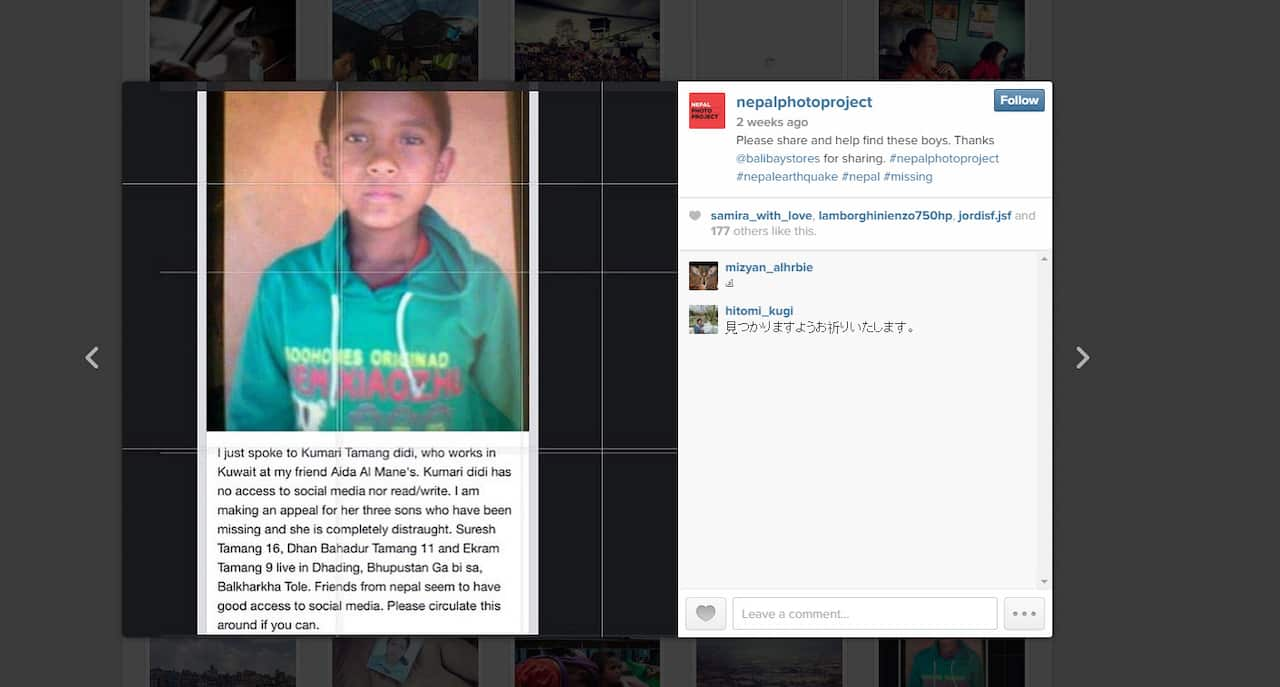 But when the second earthquake struck they had “to go back into urgency mode.”
But when the second earthquake struck they had “to go back into urgency mode.”

The Nepal photo project tries to put people in touch with their missing loved ones Nepal Photo Project @balibaystores Source: Nepal Photo Project @balibaystores
“We were again doing breaking news and that kind of immediate information that people wanted to know and that will help them understand what the hell is going on.”
She said as things begin to simmer down again, the NPP will focus on documenting the recovery.
“Once the immediacy of the news angle dies down, we [will] share more human interest stories about people.
“The really heartbreaking part of all of this is that the kind of visual landscape of Kathmandu as a city and Nepal has changed. It was known for those cultural and historical heritage sites and those no longer exist.
“So I think it’s really important to document as much as you can so that people preserve that culture.”
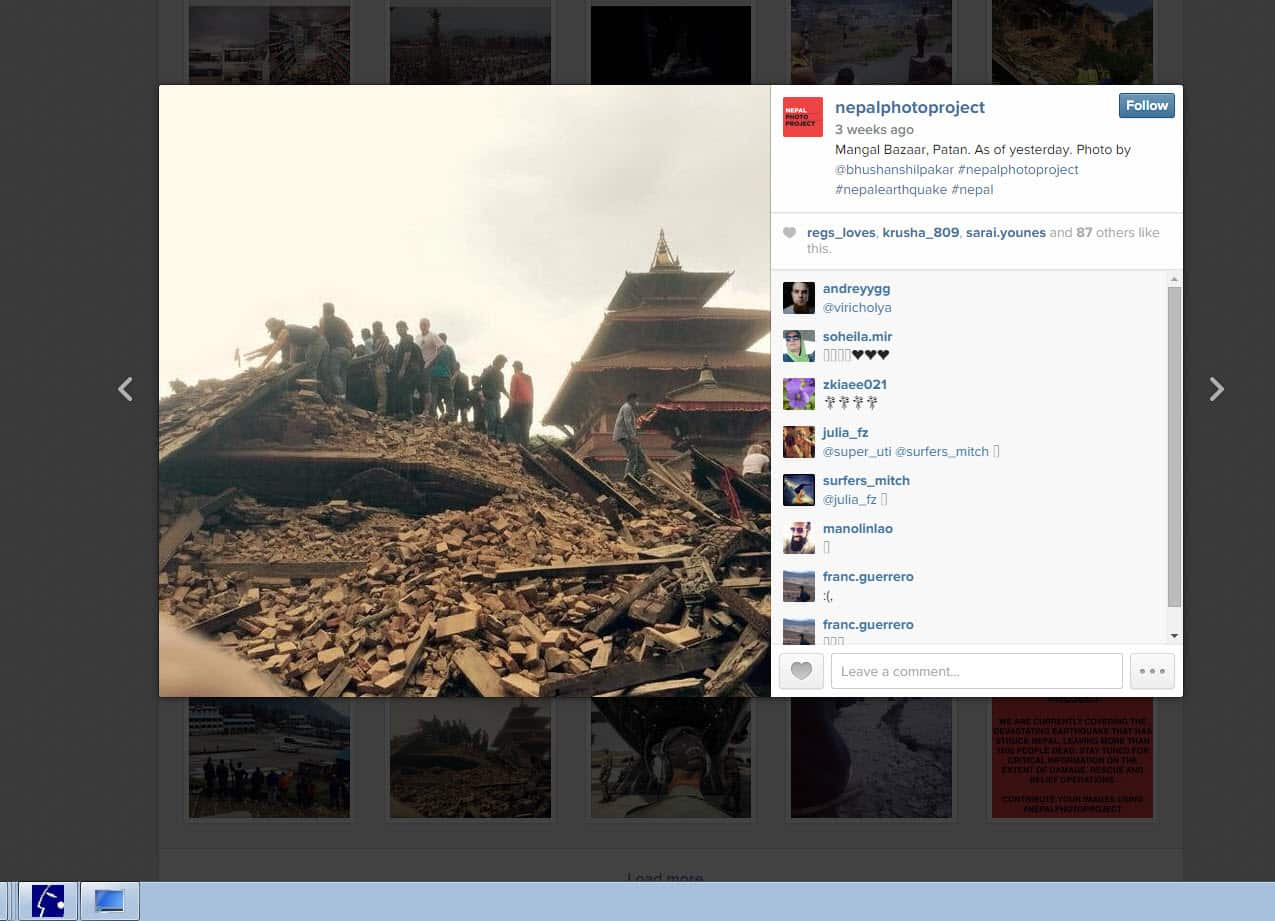
Mangal Bazaar, Patan, Photo by @bhushanshilpakar Nepal Photo Project Source: Photo by @bhushanshilpakar Nepal Photo Project
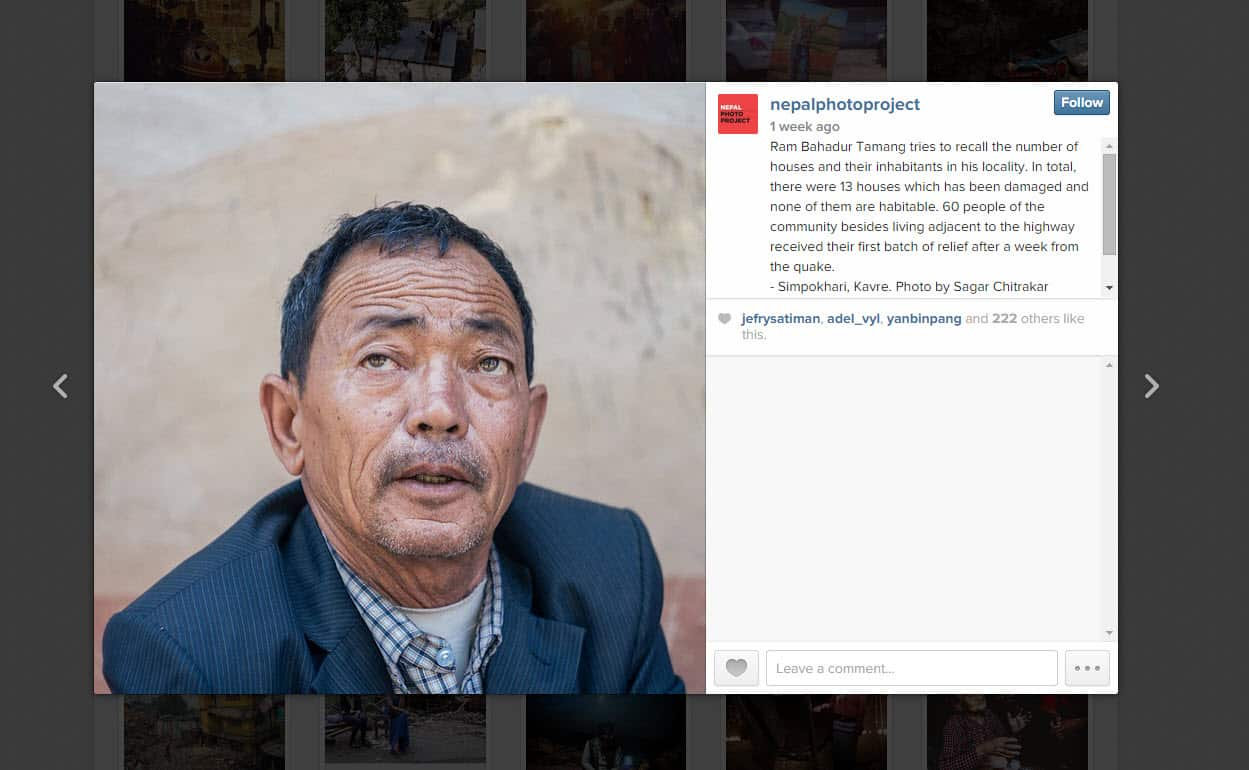
Ram Bahadur Tamang tries to recall the number of houses and their inhabitants in his locality. In total, there were 13 houses which has been damaged and none of them are habitable. Photo by@blindmanche Nepal Photo Project Source: Photo by@blindmanche Nepal Photo Project
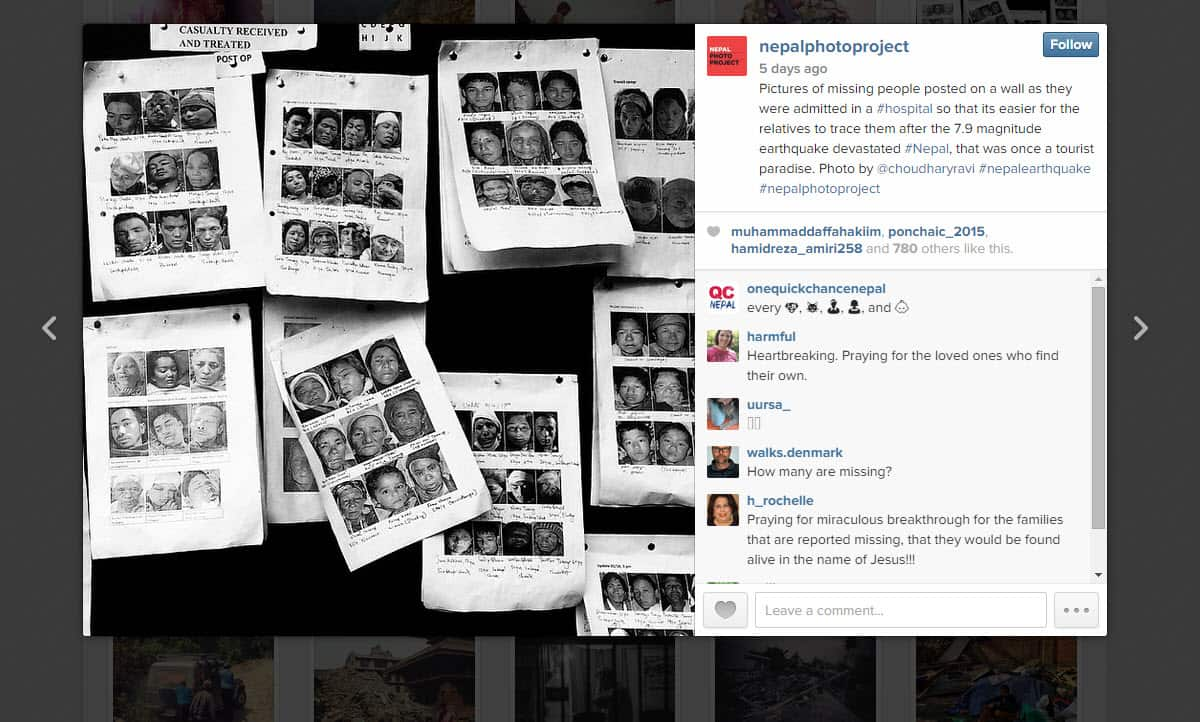
Pictures of missing people posted on a wall as they were admitted in a #hospital so that its easier for the relatives to trace them after the 7.9 magnitude earthquake devastated #Nepal, that was once a tourist paradise. Nepal Photo Project Photo by @choudharyravi Source: Nepal Photo Project Photo by @choudharyravi
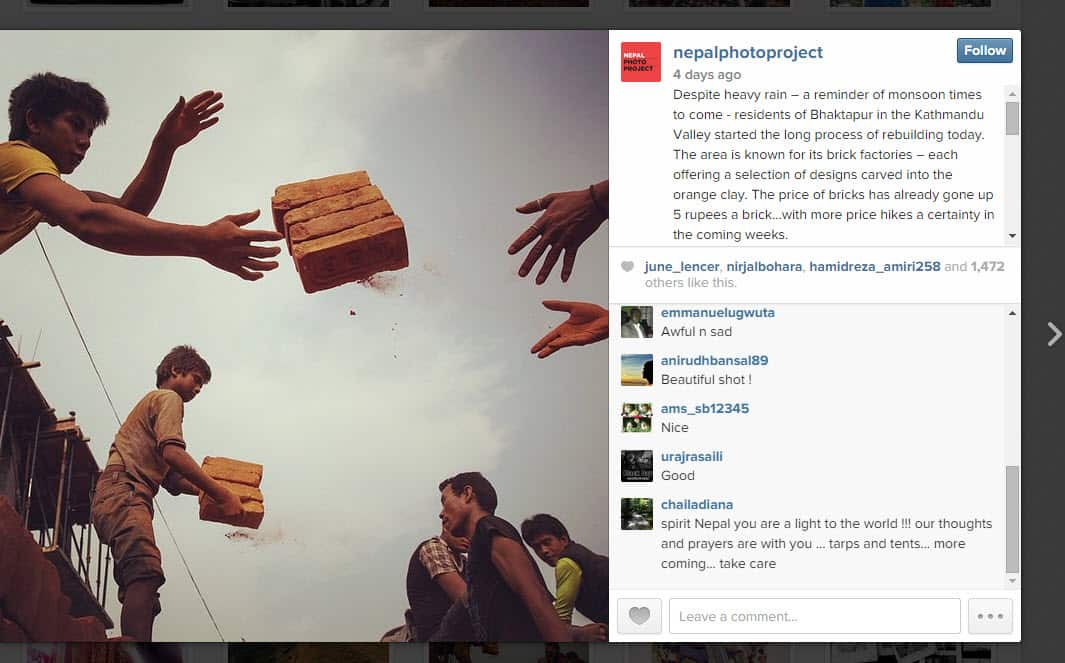
Despite heavy rain – a reminder of monsoon times to come - residents of Bhaktapur in the Kathmandu Valley started the long process of rebuilding today. The area is known for its brick factories – each offering a selection of designs carved into the orange clay. Photo by @samreinders Nepal Photo Source: Photo by @samreinders Nepal Photo Project
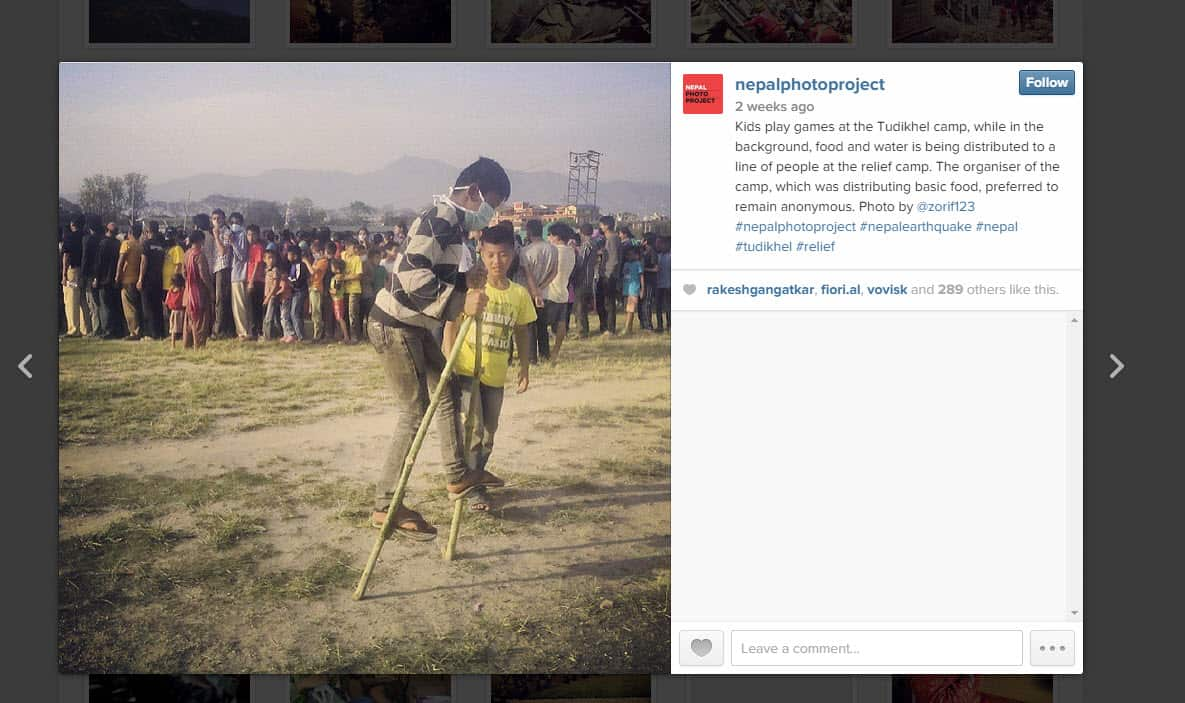
Kids play games at the Tudikhel camp, while in the background, food and water is being distributed to a line of people at the relief camp. Photo by @zorif123 Nepal Photo Project Source: Photo by @zorif123 Nepal Photo Project
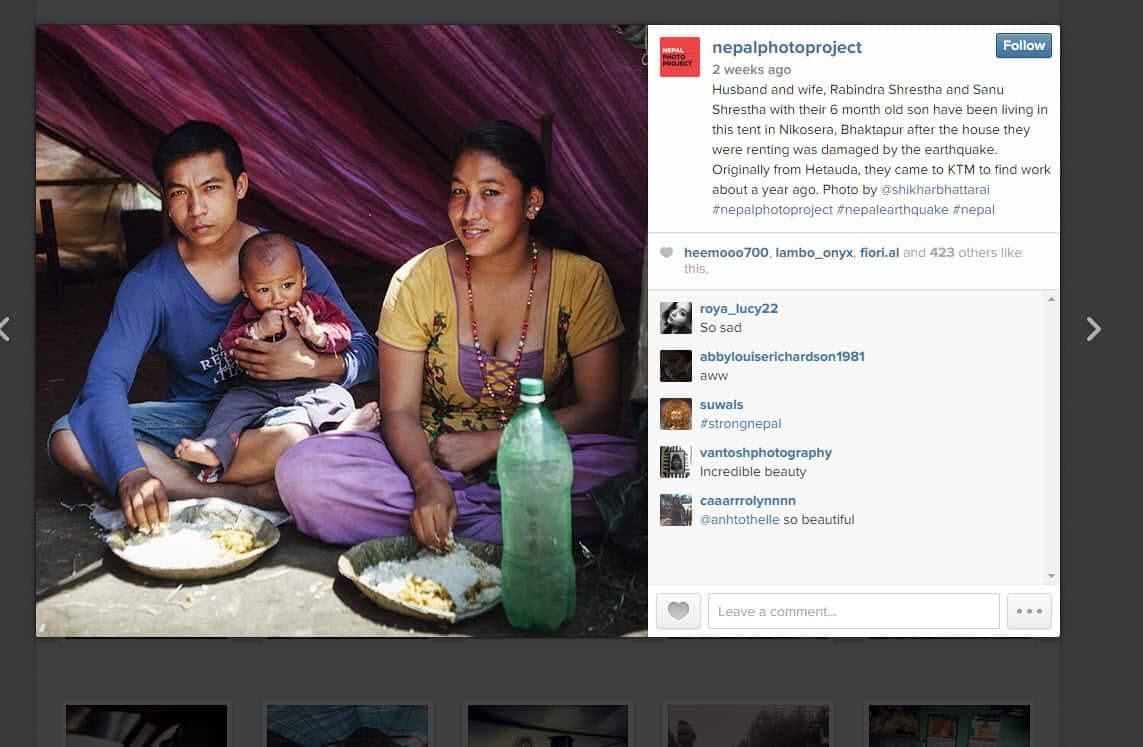
Husband and wife, Rabindra Shrestha and Sanu Shrestha with their 6 month old son have been living in this tent in Nikosera, Bhaktapur after the house they were renting was damaged by the earthquake. Photo by @shikharbhattarai Nepal Photo Project Source: Photo by @shikharbhattarai Nepal Photo Project
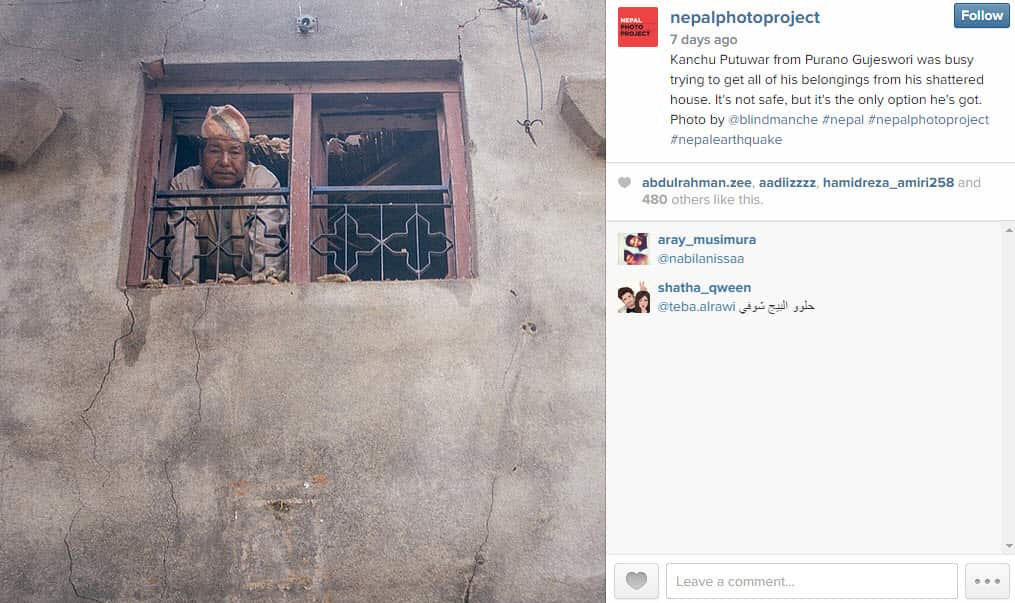
Kanchu Putuwar from Purano Gujeswori was busy trying to get all of his belongings from his shattered house. It's not safe, but it's the only option he's got. Photo by @blindmanche Nepal Photo Project Source: Photo by @blindmanche Nepal Photo Project
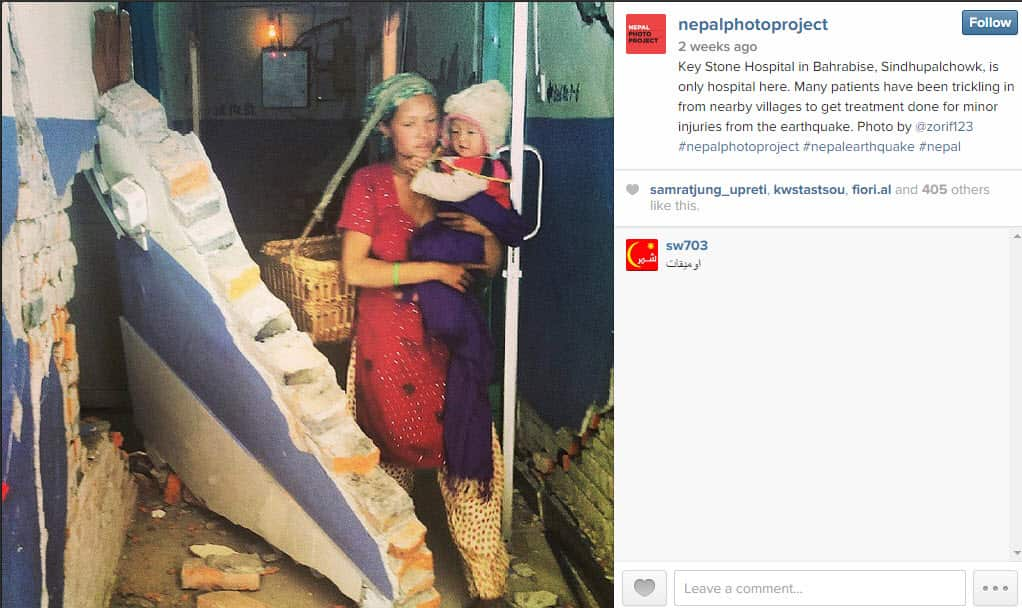
Key Stone Hospital in Bahrabise, Sindhupalchowk, is only hospital here. Many patients have been trickling in from nearby villages to get treatment done for minor injuries from the earthquake. Photo by @zorif123 Nepal Photo Project Source: Photo by @zorif123 Nepal Photo Project
Share

